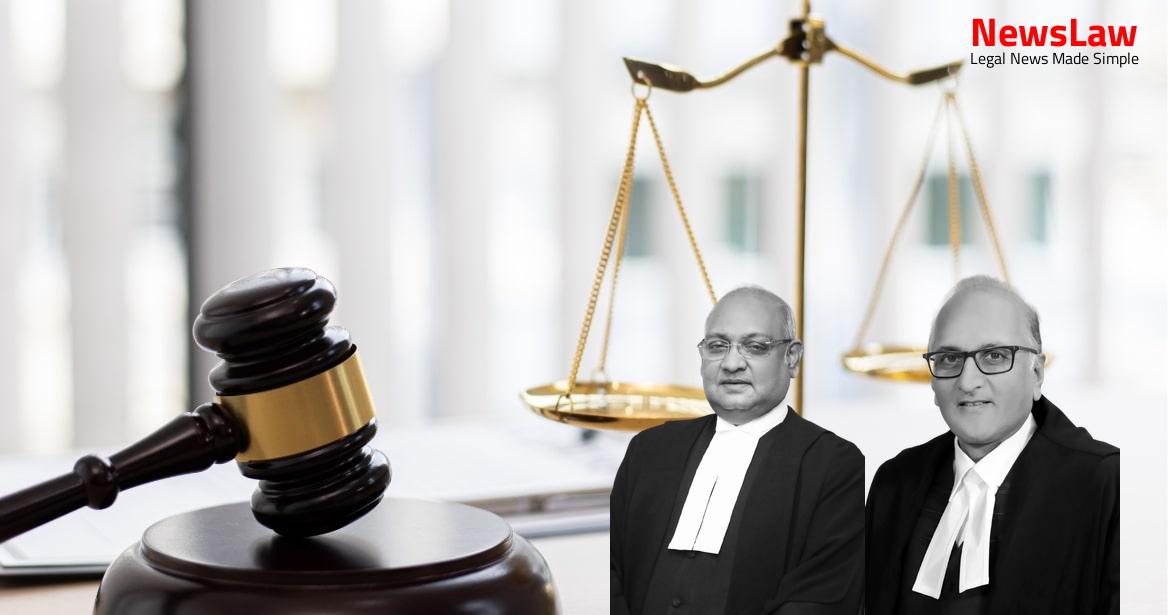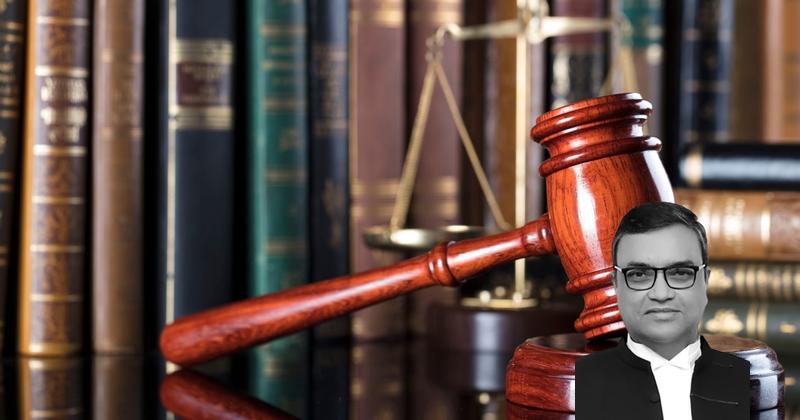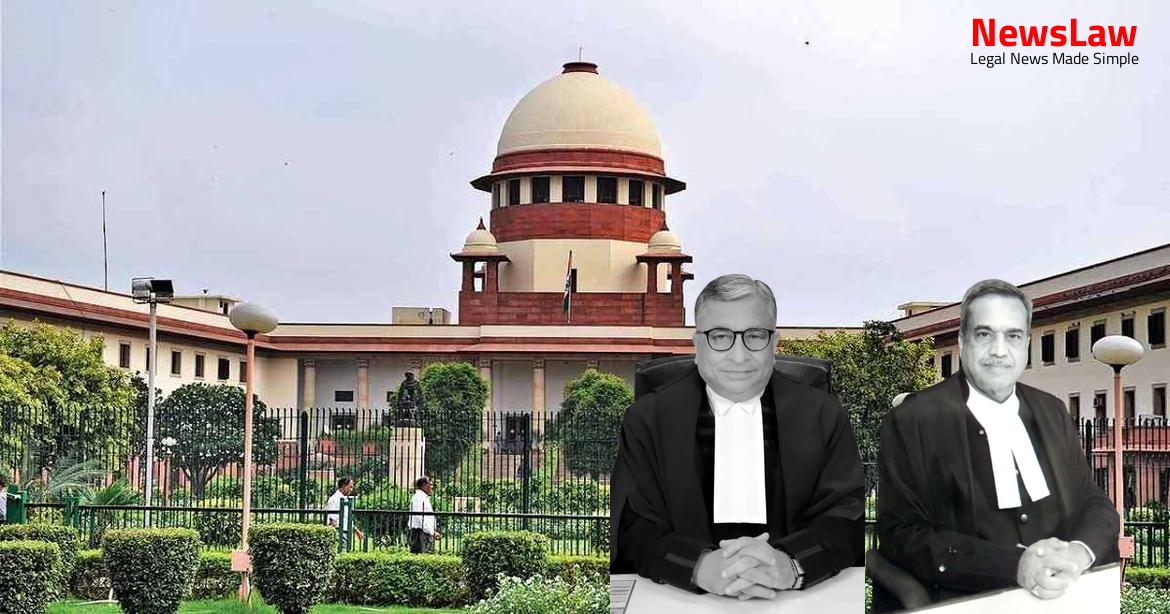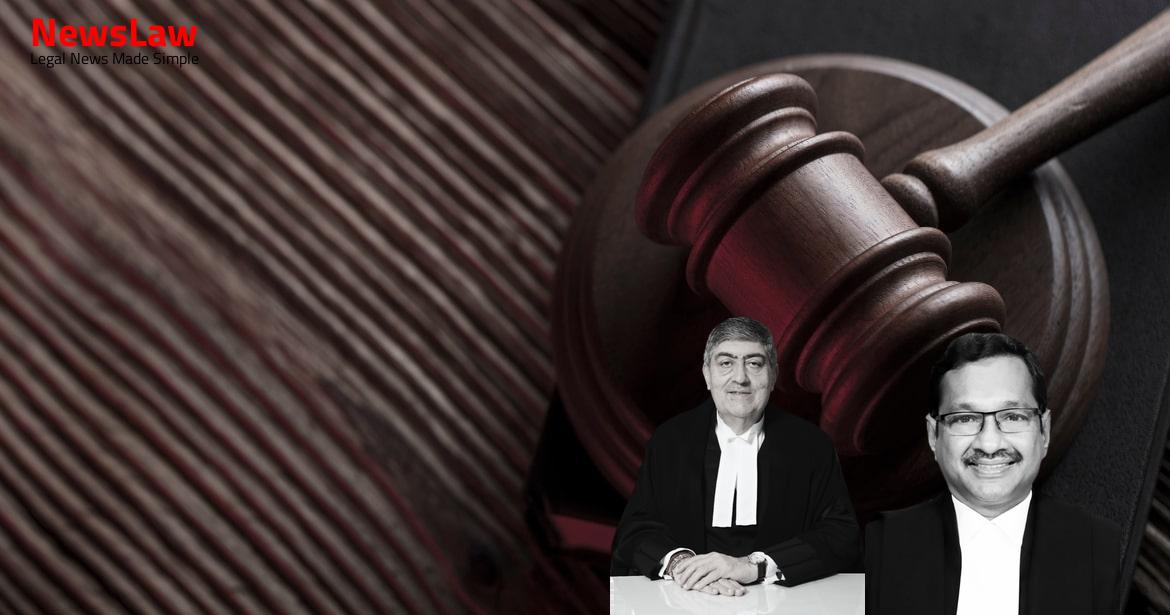The above two petitions have been filed before this Court by the State of Jharkhand through the Resident Commissioner, challenging the orders dated 03.06.2022 passed by the Division Bench of the High Court of Jharkhand, where the High Court has ordered that the PILs filed by respondent no.1 2 before the Jharkhand High Court are maintainable, and thus the High Court decided to proceed with the matter on its merits. Two public interest litigations petitions were filed before the Jharkhand High Court by the same person, i.e., Sri Shiv 3 Shankar Sharma. 4 also to investigate the financial crime committed by Hemant Soren which income has given to Ravi Kejriwal as he is connected to him since childhood and also having close connection with Ranjan Sahu, the so called owner of Hotlips Chain of hotels and restaurants and may also investigate as at which point of time and place Mr. For the direction upon the respondent No.9 to grant sanction for prosecution, to prosecute the “The Chief Minister Cum, Minister Department of Mines, for act of misuse of office and getting the Mining Lease done in his own name, although, he being a Departmental Minister/Chief Minister cannot do business (Article 191(9) of Constitution) of mining, and also committed criminal act, so he is liable to be prosecuted under Section 7(A) and 13(I)(d) of Prevention of Corruption Act, 1988 & Section 169 of IPC, and also to cancel his membership of assembly of Jharkhand, and also he has violated section 9 of the Peoples’ Representation Act, 1950 & lastly, he has contravened the code of conduct framed by Union Government for the Hon’ble Chief Minister & Ministers of States. For the direction upon the respondent CBI especially also to investigate the history illegal mining committed by the person like the respondent No 7 and due to his influence, illegal mining is done to public properties sold by Mr. Since, the Court nevertheless proceeded with the matter, the petitioner had earlier filed a petition before this Court challenging the proceedings before the Jharkhand High 6 Court in the form of these two Public Interest Litigations. 9729-9730/2022 monies by the Soren family in the names of respondent No 8 to 13 through the instrumentality of certain shell companies; and 7 (iii) In Writ Petition (PIL)
Also Read: https://newslaw.in/case-type/civil/validity-of-tamil-nadu-land-acquisition-acts/
No 727 of 2022; the petitioner Shiv Shankar Sharma seeks a direction for sanctioning the prosecution of the Chief Minister for obtaining a mining lease in his own name implicating offences under the provisions of the Prevention of Corruption Act, 1988 and the Indian Penal Code.
On 22 April 2022, when Writ Petition (PIL)
No 4290 of 2021 came up before a Division Bench presided over by the Chief justice, the Court recorded the submission of the counsel for the State that “an identical writ petition was dismissed with costs by this Court filed by the same counsel and the matter went up to the Supreme Court” where the Special Leave Petition was dismissed. On 17 May 2022, the High Court, after perusing a sealed cover which was tendered on behalf of the Directorate of Enforcement, noted the submission of the petitioner that WP (PIL) No 4362 of 2019 may be placed along side the petition which the High Court was considering on the next date of hearing and accordingly the proceedings were adjourned to 19 May 2022. Since the High Court has observed in its order dated 13 May 2022 that it would deal with the maintainability of the petition upfront, we are of the considered view that it would be appropriate in the interests of justice that the Division Bench presided over by the learned Chief justice does so before without proceeding to the merits of the public interest litigation. This Court has had no occasion to deal with the merits of the rival contentions which arise in the Special Leave Petitions or nor has it become necessary for this Court to express any 10 view on the allegations which are levelled in the writ petition since that is a matter which is pending consideration before the High Court. The first writ petition is Writ Petition (PIL)
No 4290 of 2021, where a prayer has been made to direct the Directorate General Income Tax, Investigation to enquire into the money transferred by the Soren family in the name of private respondents through the shell companies and also to investigate the source of income of private respondents and to investigate the financial crime committed by respondent No.6 i.e. As far as the second writ petition is concerned, a reply has been filed by the State of Jharkhand before the Jharkhand High Court as well as by the 12 Chief Minister, Mr. The mining lease which is alleged to have been made in favour of the Chief Minister is on a land situated in Angadha Mauza, Thana No. Therefore, according to the respondent at the time of filing of the second writ petition (PIL) No.727 of 2022, there was no mining lease in favour of respondent No 7 as it had already stood surrendered.
Also Read: https://newslaw.in/supreme-court/dispute-over-insurance-claim-for-home-loan/
Further, in this regard if any anomaly has been committed and respondent No 7 has to suffer a disqualification from his office, for having a mining lease in his favour, the matter in this regard is pending inquiry before the Election Commission of India in a Reference case No 3(G) of 2022 which is registered on the reference received from the Hon’ble Governor of Jharkhand under Article 192 of the Constitution of India. This Court in Kunga Nima Lepcha v. A reference to the facts of Kunga Nima Lepcha (supra) would be relevant for our purposes. In the above case, a writ petition under Article 32 of the Constitution was filed directly before this Court where the petitioner had alleged that the incumbent Chief Minister of the State of Sikkim (impleaded respondent No.2) had misused his public office and had amassed assets disproportionate to his known source of income. Clearly, the alleged acts of misappropriation from the public exchequer cannot be automatically equated with a violation of the guarantee of “equal protection before the law”. In the past, writ jurisdiction has been used to monitor the progress of ongoing investigations or to transfer ongoing investigations from one investigating agency to another. The scope for intervention by the trial court is hence controlled by statutory provisions and it is not advisable for the writ courts to interfere with criminal investigations in the absence of specific standards for the same.” Although an apprehension was raised by this Court that it is possible that the efforts of the petitioner to uncover alleged corruption may be obstructed by entrenched interests, yet statutory remedies available to the petitioner must be first exhausted and only thereafter can he approach the High Court. Public Interest Litigation was a novel form adopted by this Court in the late 1970’s and the early 1980’s to hear the grievances of the vast section of the society which were poor, marginalized and had no means to reach the Supreme Court for articulating their grievance.
This Court in Balwant Singh Chaufal (supra) while dealing with origin and development of PIL in this country has divided its growth into three phases which has been given in its Para 43 as under: – “Phase-I: It deals with cases of this Court where directions and orders were passed 20 primarily to protect fundamental rights under Article 21 of the marginalized groups and sections of the society who because of extreme poverty, illiteracy and ignorance cannot approach this court or the High Courts. The credentials of the applicant who files a PIL was held to be of extreme importance as also the correctness of the nature of 21 information given by the petitioner which had to be clear, not vague or indefinite or even generalized. (4) The Courts should be prima facie satisfied regarding the correctness of the 22 contents of the petition before entertaining a PIL. In paragraph-3, the petitioner shall give his/her full and complete details so as to reveal his/her interest, credentials and qualifications relevant for the Public Interest Litigation, along with a declaration that he/she has no personal interest, direct or indirect, in the subject matter of Public Interest Litigation.
To encourage only genuine and bona fide Public Interest Litigation and discourage Public Interest Litigation filed for extraneous considerations, the Bench hearing a Public Interest Litigation shall first verify the prima facie credentials of the Petitioner before entertaining any case as Public Interest Litigation. Thereafter, notice may be issued to 24 the Advocate General or to any other authority to enable the Bench hearing the matter to come to a prima facie satisfaction regarding the correctness of the contents of the petition or information before entertaining the same as Public Interest Litigation. In one of the directions, it was said as under: “(2) Instead of every individual Judge devising his own procedure for dealing with the public interest litigation, it would be appropriate for each High Court to properly formulate rules for encouraging the genuine PIL and discouraging the PIL filed with oblique motives. What is necessary for our consideration is that though the said petition was filed by a different person, i.e., Sri Diwan Indranil Sinha, but this was in the knowledge of the petitioner in this PIL, as the counsel for the petitioner in the earlier petition, i.e., in W.P. (PIL) No 4290 of 2021), a supplementary affidavit was filed on 20.04.2022 where the petitioner (Sri Shiv Shankar Sharma) does mention that one Diwan Indranil Sinha (i.e., the petitioner in W.P. That, the petitioner states that, the efforts taken earlier by Late Diwan Indranil Sinha, wherein, the representation sent by him has been received by the Central Bureau of Investigation, and has enquired on their own Level and communicated to him Vide Letter No 376 dated 05.11.14, stating there in that “3.
(PIL) No 4218 of 2013 by the Jharkhand High Court with costs (order dated 22.11.2013), an order which was upheld by this Court in SLP No. To the contrary, the Jharkhand High Court has held that Rules 4, 4A, 4B and 5 are not mandatory but directory in nature in view of Rule 6-A and therefore even though the Rules have not been followed that really will not come in the way of the Court to entertain a PIL, since the nature of allegations in the PIL was of a serious nature. We do not find any bona fide in this Public Interest Litigation filed by the writ petitioner and the writ petition is liable to be dismissed with cost. Public Interest Litigation which has now come to occupy an important field in the administration of law should not be “publicity interest litigation” or ”private interest litigation” or ”politics interest litigation” or the latest trend ”paise income litigation”. A person acting bona fide and having sufficient interest in the proceeding of public interest litigation will alone have a locus standi and can approach the Court to wipe out violation of fundamental rights and genuine infraction of statutory provisions, but not for personal gain or private profit or political motive or any oblique consideration. Public interest litigation is a weapon which has to be used with great care and circumspection and the judiciary has to be extremely careful to see that behind the beautiful veil of public interest an ugly private malice, vested interest and/or publicity seeking fs not lurking.
As indicated above, Court must be careful to see that a body of persons or member of public, who approaches’ the Court is acting bona fide and not for personal gain or private motive ‘or political motivation or other oblique consideration.
They pretend to act in the name of Pro Bono Publico though they have no interest of the Public or even of their own to protect. Though the parameters of public interest litigation have been indicated by this Court in large number of cases, yet 34 unmindful of the real intentions and objectives, Courts are entertaining such petitions and wasting valuable judicial time which, as noted above, could be otherwise utilized for disposal of genuine cases. If would be desirable for the Courts to filter out the frivolous petitions and dismiss them with costs as afore-stated so that the message goes in the right direction that petitions filed with oblique motive do not have the approval of the Courts.” The locus of the petitioner who initiates a PIL is therefore of extreme importance as this important form of litigation should not be abused by motivated individuals to abuse the process of the Court for their political purposes or for any other reason, but for a Public Cause. Allegations of corruption and siphoning of money from shell companies are nothing but a bald allegation, without substantiating the allegations in any manner whatsoever and 36 is therefore only asking the Court to direct Central Bureau of Investigation or the Directorate of Enforcement to investigate the matter. Then this Court in Balwant Singh Chaufal (supra) states as to how this important jurisdiction, i.e., PIL has been abused at Para 143 by observing as under: “143.
Though we spare no efforts in fostering and developing the laudable concept of PIL and extending our long arm of sympathy to the poor, the ignorant, the oppressed and the needy whose fundamental rights are infringed and violated and whose grievances go unnoticed, unrepresented and unheard; yet we cannot avoid but express our opinion that while genuine litigants with legitimate grievances relating to civil matters involving properties worth hundreds millions of rupees and criminal cases in which persons sentenced to death facing gallows under untold agony and persons sentenced to life imprisonment and kept in incarceration for long years, persons suffering from undue delay in service matters—government or private, persons awaiting the disposal of cases wherein huge amounts of public revenue or unauthorised collection of tax amounts are locked up, detenu expecting their release from the 38 detention orders, etc. are all standing in a long serpentine queue for years with the fond hope of getting into the courts and having their grievances redressed, the busybodies, meddlesome interlopers, wayfarers or officious interveners having absolutely no public interest except for personal gain or private profit either of themselves or as a proxy of others or for any other extraneous motivation or for glare of publicity, break the queue muffing their faces by wearing the mask of public interest litigation and get into the courts by filing vexatious and frivolous petitions and thus criminally waste the valuable time of the courts and as a result of which the queue standing outside the doors of the courts never moves, which piquant situation creates frustration in the minds of the genuine litigants and resultantly they lose faith in the administration of our judicial system.
Also Read: https://newslaw.in/case-type/criminal/analysis-of-evidence-and-courts-ruling/
But then the petitioner states that he has information that he has been siphoning off this money and investing it in these shell companies through one Ravi Kejriwal who is allegedly a close associate of the Chief Minister.
It is also an admitted fact that in relation to present two PILs, no FIR or complaint has been filed with the police or any authority agitating the grievances and these petitions have been filed before the High Court, without availing the statutory remedies. It was not proper for the High Court to entertain a PIL which is based on mere allegations and half baked truth that too at the hands of a person who has not been 41 able to fully satisfy his credentials and has come to the Court with unclean hands. RAVINDRA BHAT)…………………………….J.
Case Title: THE STATE OF JHARKHAND Vs. SHIV SHANKAR SHARMA (2022 INSC 1184)
Case Number: C.A. No.-008233-008234 / 2022



